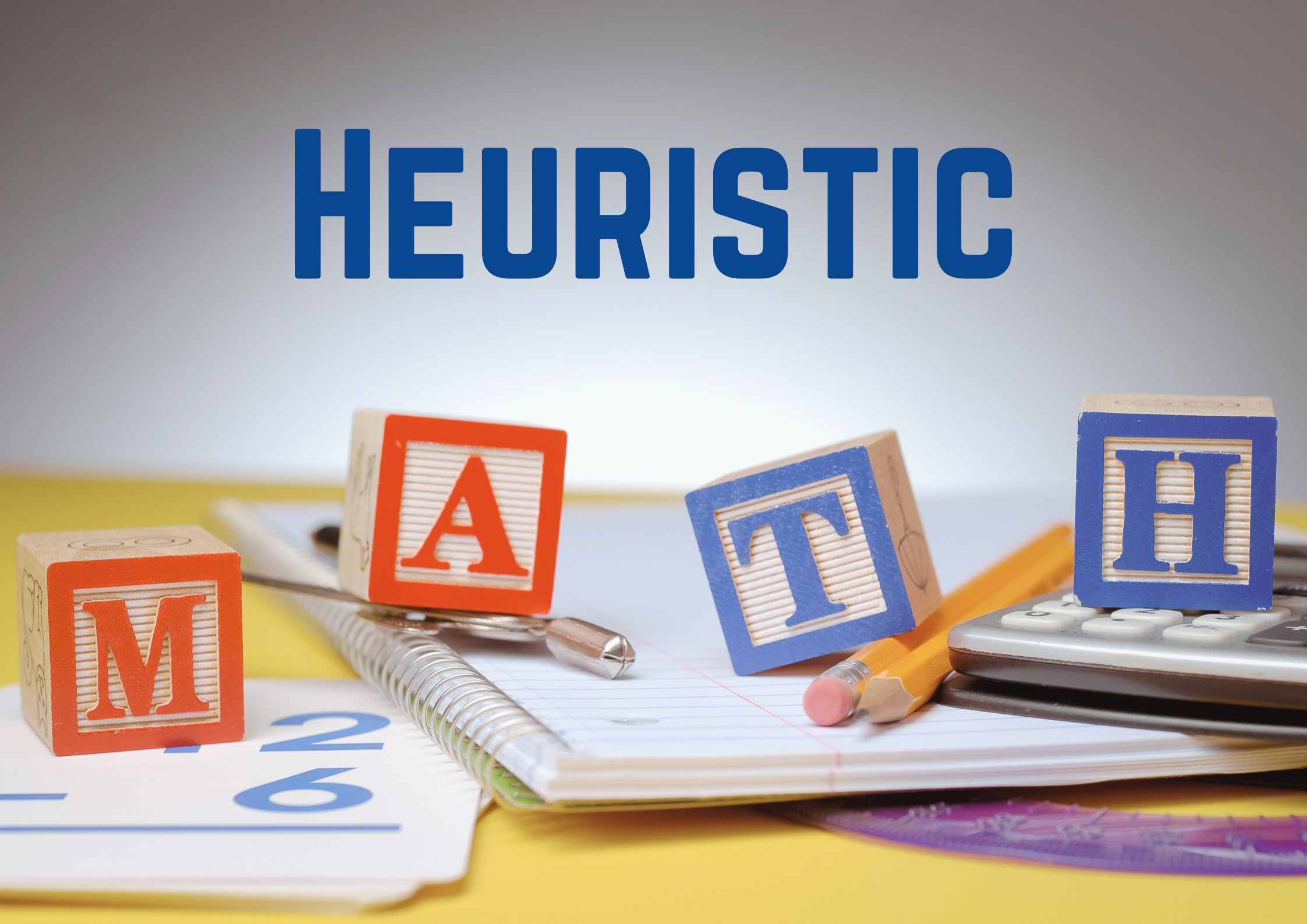- September 7, 2024
- 721
- Educational Resources
- 0 comment
Do you know that Math is the #1 subject that most Singaporean kids find challenging? Despite the nation’s strong performance in international competitions and assessments, research and surveys consistently show that mathematics is perceived as one of the most challenging subjects among students here.
This is not surprising, given the abstract nature of math concepts and the high expectations set by Singapore’s rigorous educational system. Topics like fractions, algebra, and geometry can be particularly daunting for young learners.
According to the Ministry of Education (MOE) Education Statistics Digest 2023, mathematics remains a significant focus area, with numerous initiatives aimed at improving students’ proficiency and addressing learning difficulties. Many still struggle with complex mathematical concepts, indicating a need for continued support and resources in this subject.
As parents in Singapore, many of us encounter moments when our children’s math homework seems more complex than anticipated. Understanding these hurdles and exploring practical solutions can help make our child’s educational journey smoother.
Why do students struggle with Maths?
Conceptual Gaps & Weak Foundational Knowledge: Fundamental concepts like number sense and basic operations are critical for understanding more advanced topics. Gaps in these areas can make progression difficult.
Difficulty in Applying Concepts: Students often find it challenging to apply mathematical concepts to practical problems. They struggle with recognizing when and how to use certain math concepts, relying instead on superficial connection of numbers to guess answers.
Complexity of Abstract Concepts: Math requires understanding abstract concepts that are not always intuitive. Younger students may find it hard to visualize and grasp these ideas, especially without concrete examples.
Lack of Problem-Solving Strategies: Students often lack the skills and strategies needed to solve maths problems effectively. They may struggle with identifying key information, selecting appropriate problem-solving methods, or applying a limited set of memorized strategies, finding themselves stuck when these don’t fit the question at hand.
Lack of Confidence: Many students develop a mindset that math is inherently difficult, which can lead them to the fear of making mistakes or doubt their abilities. This mindset can hinder their progress.
To address these challenges, consider these approaches to support your child’s learning journey:
1. Developing a strong foundation: The early primary school years are a crucial period for developing a strong foundation in mathematics. During this time, children are introduced to essential concepts and skills that will serve as the building blocks for more advanced mathematical learning in later years. A solid foundation not only boosts confidence but also fosters a positive attitude towards the subject.
2. Regular practice and review: Regular practice helps reinforce concepts and improve recall. Parents can set aside time daily or weekly for their children to practice math problems. Regular, short practice sessions are more effective than occasional long ones.
3. Use of Visual Aids and Manipulatives: Visual aids such as charts, diagrams, and physical manipulatives like geometry blocks can make abstract concepts more concrete. They also provide a multi-sensory learning experience that makes math more accessible and enjoyable for children. For example, using blocks or counters can help children understand addition and subtraction better.
4. Go Over Homework Together: Reviewing homework can help you understand where your child may be struggling. Ask them to explain their thinking process, which reinforces their understanding.
5. Online Resources: Online resources can be an invaluable aid for parents to support your child’s math education especially when you may not feel confident in teaching the subject.
Some platforms offer instructional videos and interactive exercises that engage children and they serve as supplementary learning tools, helping children build a solid foundation in math and encouraging a positive attitude toward the subject. They are also especially useful for parents who may not have the time or expertise to teach math concepts directly.
6. Expert Guidance: Lastly, parents can consider specialized math enrichment centres that provide targeted support to help children excel. These centres are designed to address specific learning needs and provide targeted help. They often offer customized learning plans based on each child’s strengths and weaknesses and employ experienced educators who specialize in teaching math.
These educators are skilled at breaking down complex concepts into simpler, more digestible parts, making it easier for children to grasp challenging topics.
We have put together range of specialized math tuition centres that provide targeted support to help children excel. With distinctive approaches, these centres use innovative teaching methods and tailored programs to address the unique needs of each student.
1. Polymath Learning Centre
At Polymath Learning Centre, they integrate model drawing with equations to teach heuristic mathematics. Their proprietary Tailored Learning System tracks every question a student has completed, ensuring future assignments are optimally challenging. The questions either challenge your child at a suitable level to improve critical thinking or recap a concept that your child is frequently weak at, minimizing time spent on non-optimal practice.
https://www.polymathlc.com.sg/mathematics.html
2. Oodles Learning
Oodles Learning’s ThinkingMath program is designed with a pedagogically proven curriculum that complements the Singapore school math syllabus. They emphasize performance curriculum, key mathematical approaches, and good exam habits. Their strategies include clear presentation, checkpoints, and systematic labeling, which are crucial for mastering math problem sums.
https://www.oodleslearning.com
3. The Math Classroom
This centre uses a two-pronged heuristic approach to enhance critical thinking and problem-solving skills. Students learn to differentiate between questions and apply the appropriate heuristics. To assess students’ ability to understand and apply concepts, questions involving different heuristic approaches are mixed within the problem-solving segment. The curriculum progresses from basic to advanced levels, ensuring comprehensive understanding, exam readiness and stretches students’ analytical skills for non-routine questions. This promotes progressive learning and enable students to gain confidence in the topic.
https://www.themathclassroom.com.sg
4. Terry Chew Academy
Terry Chew Academy focuses on building a strong foundation and teaching effective problem-solving strategies. Their research-backed approach uses visual aids, manipulatives, technology-enhanced learning, and real-life examples to make math engaging and help students connect with the material. They offer comprehensive curriculum coverage tailored to PSLE requirements, guiding students in breaking down complex problems and selecting appropriate methods. The academy also uses Exam Simulation and Peak Performance Training to identify areas for improvement, providing targeted feedback. They have developed 28 problem-solving strategies and tools to ensure students are fully prepared for exams.
5. Concept Math
Concept Math uses the S.M.A.R.T. approach, which aligns with the Ministry of Education’s problem-solving framework. This method combines model drawing and heuristic techniques to help students apply math concepts across various topics. The S.M.A.R.T. approach is a systematic process that helps students identify concepts and select appropriate heuristics, enabling them to solve problems quickly and confidently while minimizing careless mistakes.
6. Thinker Education
Thinker Education uses a progressive learning approach, starting each lesson with a review to reinforce concepts before moving towards increasingly complex drills. This method helps reinforce previous knowledge while gradually introducing new concepts with a series of progressively challenging drills to stimulate learning, preparing students for advanced mathematical challenges and critical thinking. As your child attempt more challenging questions, they are rewarded with a well-deserved sense of satisfaction.
https://www.thinkereducation.com
7. Mathnasium
Mathnasium offers a unique blend of mental, verbal, visual, tactile, and written techniques to build number sense. Their program begins with a unique customized assessment to identify learning gaps and strengths, followed by a tailored learning plan that ensures mastery of essential math concepts. Their assessment reveals each specific skill area that needs to be mastered so children aren’t wasting time reviewing concepts they already know. Assessments are conducted regularly to ensure progress and that your child retains the skills they’ve learned.
8. Math Mavens
Students are introduced to various question types and guided through the ROAR™ problem-solving process. This method teaches them to recognize the main idea behind each problem, organize the given information using uniquely designed methods, act on this organized information to find solutions, and review their answers for accuracy and reasonableness. The curriculum is both systematic and rigorous, designed to supplement and complement the mainstream education system. It incorporates activities that help students develop conceptual understanding, visual and spatial awareness, and various thinking skills, ensuring they are well-prepared for the concepts taught in schools.
9. Parkway Math (Maths Accelerator Centre)
Parkway Math uses the S-C-O-R-E SYSTEM that begins by letting students learn through experiential activities that help them grasp various problem-solving strategies. Content Mastery follows, utilizing effective teaching and questioning techniques to deepen students’ understanding of essential concepts and how they relate to solving complex problems.
As students progress, they reach the Optimized Performance stage, where they practice applying their knowledge and strategies to challenging questions, sharpening their mathematical skills. After mastering a major topic, the centre conducts a Review Performance, ensuring that any weaknesses are addressed before exams by communicating with parents about their child’s progress. Finally, the Evaluation stage involves helping students reflect on their learning and consolidate their knowledge into memory maps, which aids in recalling information during assessments. This structured approach not only boosts exam readiness but also fosters a deeper, more integrated understanding of math.
10. Math Monkey
At Math Monkey, the teaching philosophy diverges from traditional methods that can inhibit children’s natural learning abilities by causing stress and anxiety over grades. Instead, Math Monkey emphasizes a “play to learn” approach, which encourages children to view numbers as fun rather than as work. This positive association helps nurture the brain’s natural capacity for learning.
The curriculum is designed with games that address all aspects of intellectual and emotional development, particularly focusing on younger children who benefit most from regular mental engagement. Through these activities, children enhance their mental math skills by improving concentration and memory, making the learning process both enjoyable and effective.
11. Neuromath
Their math education programs leverage cognitive psychology to boost students’ abilities in attention, visual-spatial perception, memory, and problem-solving, which are crucial for academic success. The MATH Framework, a key component of their approach, emphasizes mastering learning through cognitive skills, applying structured knowledge creatively, and thinking holistically using pattern recognition.
By moving away from traditional rote memorization, the program fosters pattern thinking, enabling students to systematically organize information, think analytically, and recognize and adapt to new patterns. This method not only enhances academic performance but also prepares children to thrive in Singapore’s competitive educational landscape by promoting critical thinking and adaptability.
12. Learning Voyage
At Learning Voyage, the ‘Plug-the-Gaps’ technique is designed to identify and address specific gaps in students’ math knowledge. Students can ask questions about formulas or concepts they struggle with in school. Based on these questions, the tutor identifies the “knowledge gaps” and focuses on these weak areas. Customized sets of questions ranging from easy to hard are provided, and step-by-step coaching is given to help students tackle math problems with speed and accuracy. This targeted approach aims to strengthen understanding and improve performance in math.
13. Ammiel Wan
Ammiel Wan’s math program utilizes the “Parallel Questioning” technique to enhance students’ critical thinking skills. This approach focuses on three key areas: Contextual Knowledge, which involves translating and inferring information from problem texts to help students understand the context and nuances of the questions; Conceptual Knowledge, which emphasizes connecting concepts and forming key relationships, allowing students to see the bigger picture and understand how different elements of a problem relate to each other; and Procedural Knowledge, which involves using heuristics or strategic approaches to guide students in solving problems effectively. This comprehensive method equips students with the skills needed to tackle math problems holistically and improve their critical thinking abilities.
14. MPM Math
MPM (Multi-Process and Multi-Model) Math aims to develop children’s critical thinking by guiding them to solve complex problems through simple, logical steps. By encouraging children to approach problems from different perspectives and use various methods, MPM enhances their problem-solving abilities. The program introduces fundamental concepts at a basic level and revisits them in more advanced stages, promoting independent learning through a spiral curriculum. This coaching approach adapts to the needs and progress of each student, ensuring a deeper understanding of the material.
15. Math Nuggets
As experts in math tuition for Primary 1 to Primary 6 students, specializing in Singapore Math and PSLE preparation, Math Nuggets conducts a Problem Sums Masterclass – a comprehensive program designed to equip students with the essential problem-solving skills and strategies from the very beginning. Each child also undergoes a diagnostic test to determine their current level of understanding. This allows them to tailor their teaching to address individual needs, fostering targeted growth and development. Throughout their masterclass, they cover a wide array of foundational concepts, equipping students with the tools they need to tackle even the most challenging problem sums
As they also understand the importance of memory and focus in the learning process, they have an optional Brain Training Module to enhance your child’s cognitive abilities. This module is designed to boost memory retention, improve concentration, and sharpen analytical skills – all vital components of successful math problem-solving.
Navigating your child’s math education journey requires a holistic approach. While specialized programmes can provide essential support, it’s equally important for parents to be actively involved in your child’s learning journey. Encouraging regular practice, fostering a positive attitude towards math, and online resources can make a difference. Additionally, developing problem-solving skills and confidence through a supportive and engaging learning environment is crucial.








Add Comment